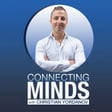
Wisdom of Ayurveda w/ Brenda Carey
Do you need help with your health? Would you like to increase your longevity while addressing existing health issues?
Request your FREE Metabolic Function Assessment session with me here: https://www.livelongerformula.com/
During this 45-minute consultation we’ll take a deep dive into critical areas of your metabolism and understand what is out of balance.
From gut health and hormone function to adrenal health and blood sugar regulation, even a small imbalance in any of these (or other) areas can lead to poor health in the future and diminished longevity…but the sad fact is that a large majority of people over 40 have multiple imbalances in multiple areas of their metabolism…
The key is to identify and address these swiftly, so that you can thrive for decades to come without worrying that “something’s brewing under the surface.”
Request your Metabolic Function Assessment session here and let's get you thriving for decades to come: https://www.livelongerformula.com/
---
Brenda Carey is a spiritual and sensitive soul who is on a mission to empower empaths and healers to share their Light. Her purpose is to inspire others from her own personal transformation of the struggles from spinal fusion surgery and autoimmune issues to embrace each day with gratitude.
She is a Holistic Healer utilizing her training as an Ayurvedic Lifestyle Coach, Reiki Master, sacred ceremony facilitator, yoga and meditation teacher to create vibrant health. She is the owner of Sacred Path Healing, a co-host on Be The Love podcast, and hosts retreats in the US and internationally. When she is not on her yoga mat, you can find her hiking in the mountains of Montana.
Connect with Brenda:
https://www.sacredpathyogaandreiki.com
https://www.instagram.com/sacredpathyoga
https://www.facebook.com/sacredpathhealingyoga
https://www.bethelovepodcast.com
